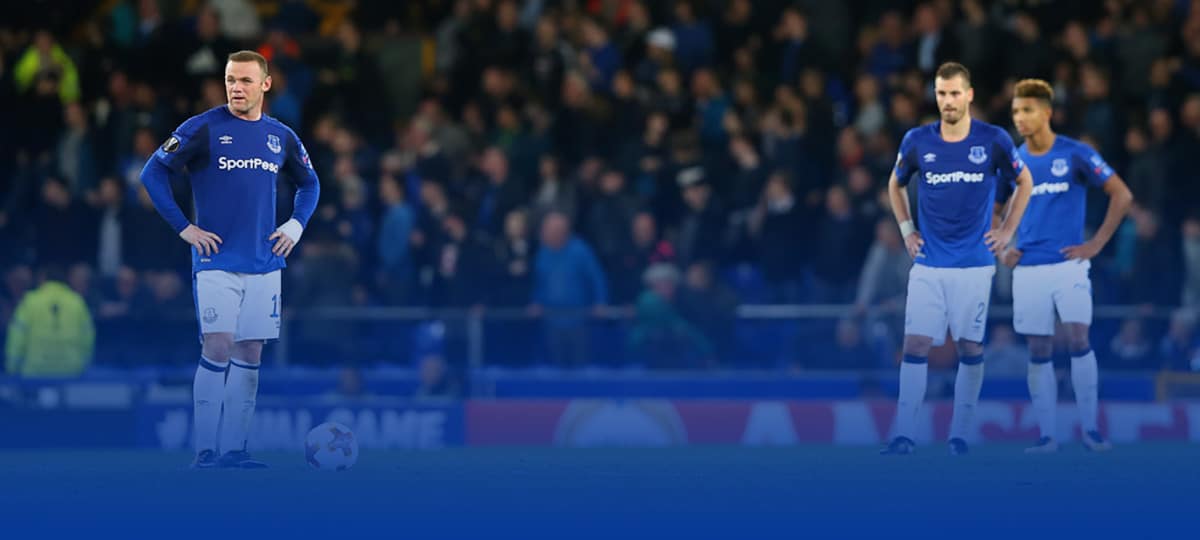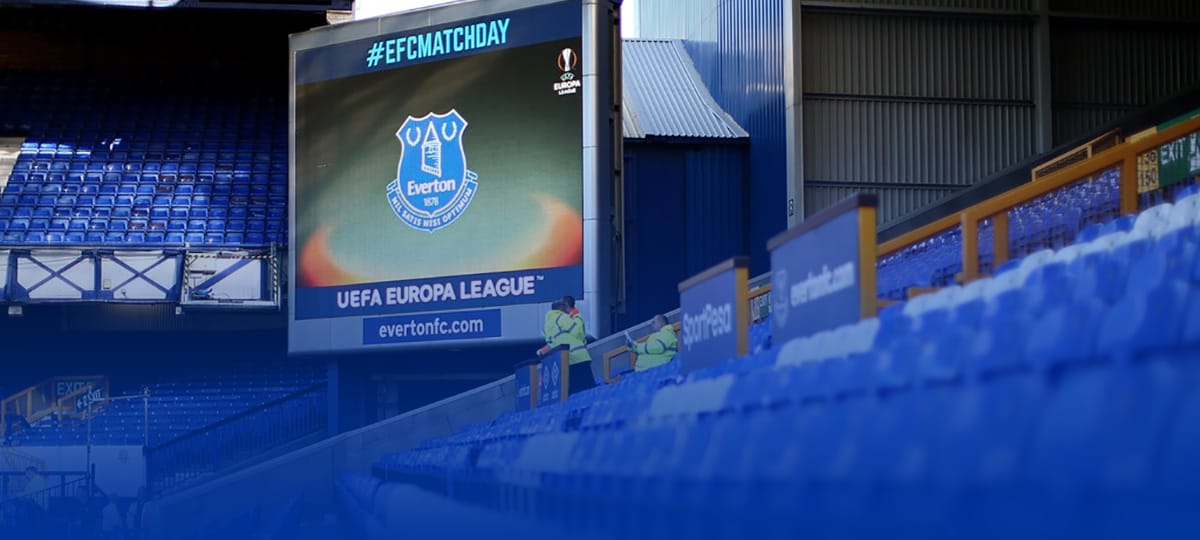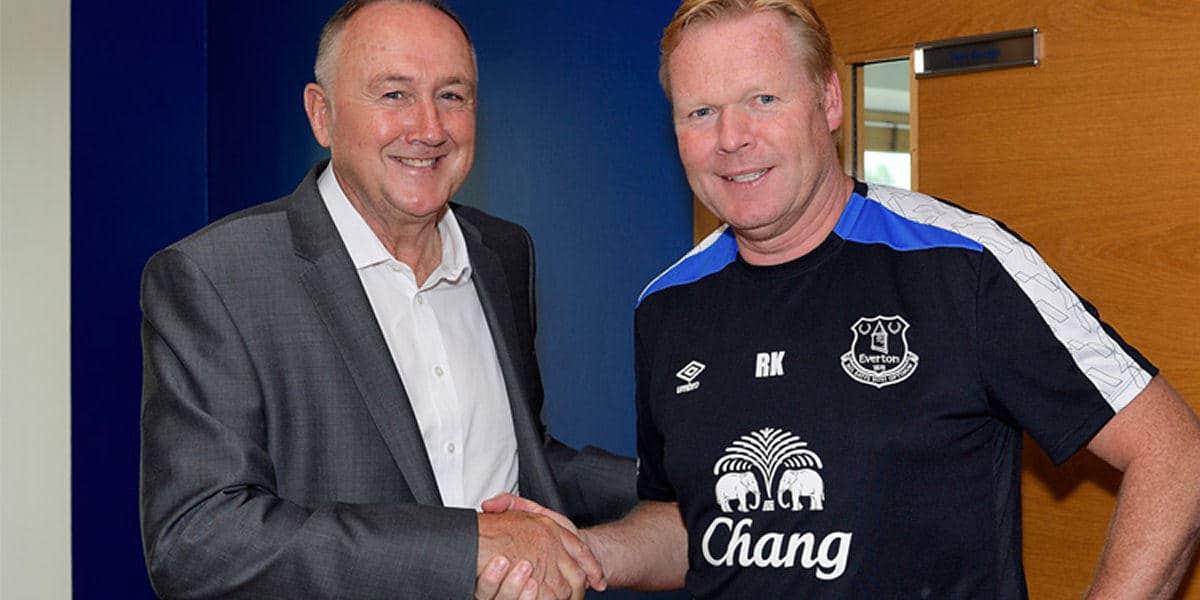“History repeats itself, first as tragedy then as farce”
The Limissol draw, a draw which was snatched from the jaws of victory compounded an acute sense of reality for most Evertonians. A reality which has come to mean mediocrity, underachievement and chaos is a problem in and of itself though the more pressing one is that Europa League qualification is starting to look perilous. With each game that passes the sheen of the Koeman regime wears off a little more, and the hopes of the post Martinez Moshiri era also get downgraded.
For me the Europa League presents Everton with a unique opportunity. It gives us an exposure to potential sponsors and an opportunity to begin to re-write the history book which shows us underachieving in European competitions compared to our domestic prowess. At a practical level it was the best chance for us to get into the champions league at the start of the season and 6 games in that remains the case. While there is rigidity to progress in the premier league, underpinned by the wealth of 5 clubs (and increasingly a 6th in Spurs) being able to dominate the league this is simply not the case in European competitions. Winning the Premier League is a pipe dream however Everton are competitive with almost every side in this seasons Europa League and that is really not being born out in performances. While it presents a unique opportunity, for Everton not to qualify would represent a disaster for manager Koeman and one which he would have great difficulty justifying to growing sections of the fanbase.
As we reflect more broadly we are left with two interceding ideas, namely that football is not black and white and the role of the manager has been eroded over a period of time to mean it’s not useful to see them as a sole arbiter for change. This brings into question the belief that Koeman alone could be the manager to overcome the problems which were attributed centrally to Martinez before him. If it were that simple he would have had a great chance, as Koeman’s attributes in being anti-ideological in his playing style, obsessive over winning, happy to play the percentages and keen desire for defensive solidity were mirror images to Martinez. Yet there are cracks appearing in this belief, which may be indicative of more than just Koeman not being a great manager but hint at more structural difficulties.
Such a view- that a manager alone can transform a team has a rooting in the historical traditions of English football and does sit well with a fanbase who are as nostalgic and traditional as any in the game. It does have some evidence too, Busby built United, Shankly turned Liverpool from second division also rans (think Blackburn Rovers) into a side that won leagues, Ferguson would re-build United and Kendall would be instrumental in Everton’s mini revival of the mid 80’s. While it is absolutely true to say, in each instance the clubs successes would not have been achieved without each man there is also factors that go well beyond their control. United of the 50’s and Liverpool of the 60’s rode the crest of the growing popularity of the national game and were situated in football mad working class cities. Kendall took a lot of gambles and all of them came off together at a similar point. Ferguson took over a club who were the biggest in the country but had greatly underachieved.
In all but a few examples though, success is about more than 1 person and so failure ought to be viewed as deeper than just 1 person not doing their job well enough. This is especially true with the direction the game has now taken, managers themselves are simply not given long enough to implement the sort of changes that might bear long term fruit. It has got to such a stage now, that most clubs have Director of Football figures in one form or another to try to overcome this volatility. Rather than just giving managers time they need, we employ other people to be part of the longer term constituency of the club a process which in part provides comfort to the idea that going through managers in a sport heavily reliant on good fortune is a reasonable way to operate.
For Everton this reality ought to be kicking in. We have now had successive managers yet many of the same problem exist. Not only have we had new managers, but we have had managers who seemed to cover for the predecessors weak parts. Take Martinez, after Moyes had left there was an acceptance that while we had become a solid consistent we had underachieved in cup competitions and the quality of football needed to be more attacking. We found a manager who played more attacking football and had an impressive record in domestic cups. When it eventually went wrong, there was an acceptance Everton needed a manager with more defensive stability, a bigger name and one who would play more pragmatic football. We delivered a manager in that mold in Koeman yet we appear to be hitting another brick wall. Last night Koeman gave the fans much of what they wanted, with Holgate at centre back and Kenny at right back (as well as Davies playing) and the result was disappointing. There is no easy fix to problems.
The blunt reality is that while problems may at times be exacerbated at managerial level they are not caused by managers. The core problem is that Everton have fallen so far behind in terms of turnover and therefore revenue available to spend that we have to punch above our weight to be competitive with the teams above us. This dilemma is worsened by an unwilling to plan accordingly to address such issues and not have any credible plan for growth to try to address such fall backs. When you compare Everton’s wage bill to Liverpool’s for example, in real terms we are closer to Burton Albion than Liverpool. When it is taken as a % (ours is around 40% of there’s) again you are looking at solid Championship teams who have the same relationship with Everton. It is little wonder that managers eventually run into a brick wall when faced with the dual expectation that Everton compete and finish above sides who considerably outspend them.
At this point we are left with the old Camus retort that the future is a boot stamping on a face but as with business there is always hope. Firstly in comparison to the rest of Europe Everton’s wage bill and ability to spend matches up positively against all but a handful of European teams. Our wage bill is 7th in England but 12th overall. Not only that, but the levels of money coming into the Premier League are now so high there is a legitimate argument to say does the gross inequality at the top of the league make such a profound difference. No Premier League team is under any necessity to sell (as long as the player has a long contract) which does lead to the opportunity to build a squad that can grow together over a 3 or 4 year cycle. Spurs have managed this most successfully though Leicester are also a fine example of what can be achieved.
Everton really ought to look at the model AS Monaco, Dortmund or Athletico Madrid have. All have turnovers and spend figures which are comparable to Everton and have each developed teams over the last decade that would have been competitive for trophies in England. A compelling case could be made that Athletico would have won two league titles in England with the same approach and could well have won two European cups. In investing resources in a manner that is radically different from the top teams in their divisions (Bayern, PSG, Barca and Real Madrid) each fought out a niche by which they could be competitive.
You do feel that process is somewhat underway at Everton. While the concept of dual power was originally coined by 20th century Marxists there is a similarity with what’s happening within Everton, where it appears different individuals having different beliefs of how the club should progress. While Walsh appears to be the closest to the model adopted by the teams mentioned above (as evidenced by his investment in younger players) Koeman appears uneasy at such an approach. The signings he has insisted upon, Schneiderlin, Bolasie & Sigurdsson do not fit easily into such an approach. It is perhaps this more than anything else that needs to be considered when we analyse his performance.





